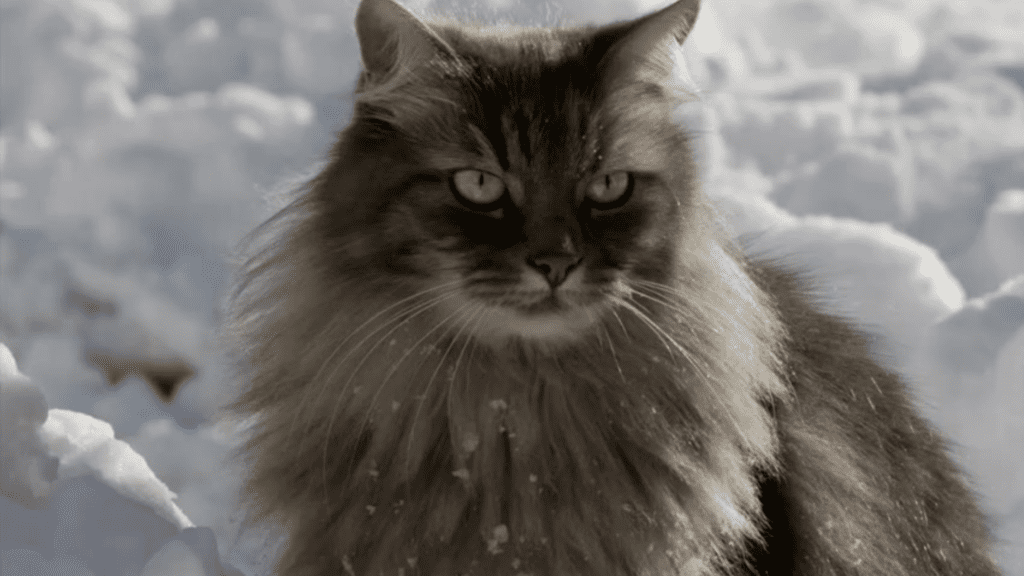As an animal communicator and medical intuitive, I’ve worked with countless cats whose well-being is influenced by the changing seasons. Winter can bring challenges for your feline friends, whether they’re indoor or outdoor adventurers. Cats are incredibly intuitive and adapt well, but they still rely on us to notice their subtle signals when the cold months affect their health.
Let’s explore how winter weather can impact your cat’s health and what you can do to keep them safe, comfortable, and happy.
1. Joint and Muscle Health
Just like humans, cats can feel the effects of cold weather in their joints and muscles, especially if they have arthritis or previous injuries. As a medical intuitive, I often sense stiffness or discomfort in older cats during winter. They might be less active, hesitate to jump, or favor certain limbs.
What You Can Do:
- Provide soft, warm bedding in a draft-free spot. Heated pads or blankets can be a lifesaver for cats with joint issues.
- Encourage gentle play to keep them moving without overexertion.
- Consult your vet about supplements or treatments that can support joint health.
2. Hydration in Dry Winter Air
The dry air from indoor heating can cause dehydration in cats, leading to dry skin, dull coats, or even urinary tract issues. Cats are naturally less inclined to drink water, so this can become an issue during the colder months.
What You Can Do:
- Invest in a cat water fountain to encourage hydration.
- Feed a wet food diet and add water for additional moisture.
- Use a humidifier to keep the air in your home cat-friendly.
3. Skin and Coat Changes
Winter weather can lead to dry, flaky skin or changes in coat texture. Many cats experience discomfort in their sinuses and nasal passages due to dry air. Through virtual intuitive communication sessions, cats often “share with me” their discomfort, whether it’s through subtle behaviors like excessive grooming or avoiding being touched. Even from a distance, I can tune into your cat’s energy and help identify what might be causing their discomfort, offering insights to improve their well-being during the colder months.
What You Can Do:
- Brush your cat regularly to distribute natural oils and prevent matting.
- Use a fish oil supplement (with vet approval) to promote healthy skin and a shiny coat.
- Keep bathing to a minimum, as frequent baths can strip their coat of protective oils.
4. Sensitivity to Cold
Cats feel the cold too, especially short-haired or senior cats. Even indoor cats can experience discomfort if their favorite spots are near drafty windows or unheated areas.
What You Can Do:
- Block drafts with weather stripping or insulated curtains.
- Move their favorite resting spots to warmer areas of your home.
- Limit outdoor time for cats that typically roam, and always provide a warm shelter if they insist on venturing out.
5. Emotional Well-being in Winter
Winter can also affect your cat’s mood. Shorter days mean less sunlight, which can impact their energy levels and overall happiness. During intuitive sessions, cats sometimes share feelings of restlessness or boredom in the winter months.
What You Can Do:
- Engage them with new toys, puzzles, or interactive games to stave off boredom.
- Create cozy spaces near windows so they can soak up any available sunlight.
- Spend extra quality time with them—they’ll feel your love and warmth, which is the best gift of all.
Bonus Insight from Communication Sessions
Sometimes, cats may be dealing with discomfort that isn’t immediately visible. As an animal communicator and medical intuitive, I can help uncover what your cat is feeling and how winter weather may be affecting them specifically. Whether it’s subtle pain, emotional shifts, or environmental preferences, your cat has a lot to share about their well-being.
Winter can be a challenging time for your feline friend, but with a little extra attention and care, you can help them thrive through the cold months. If you’re curious about how your cat is feeling this winter or want tailored advice, I’m here to help. Let’s connect and tune into your cat’s needs—schedule a session today!



